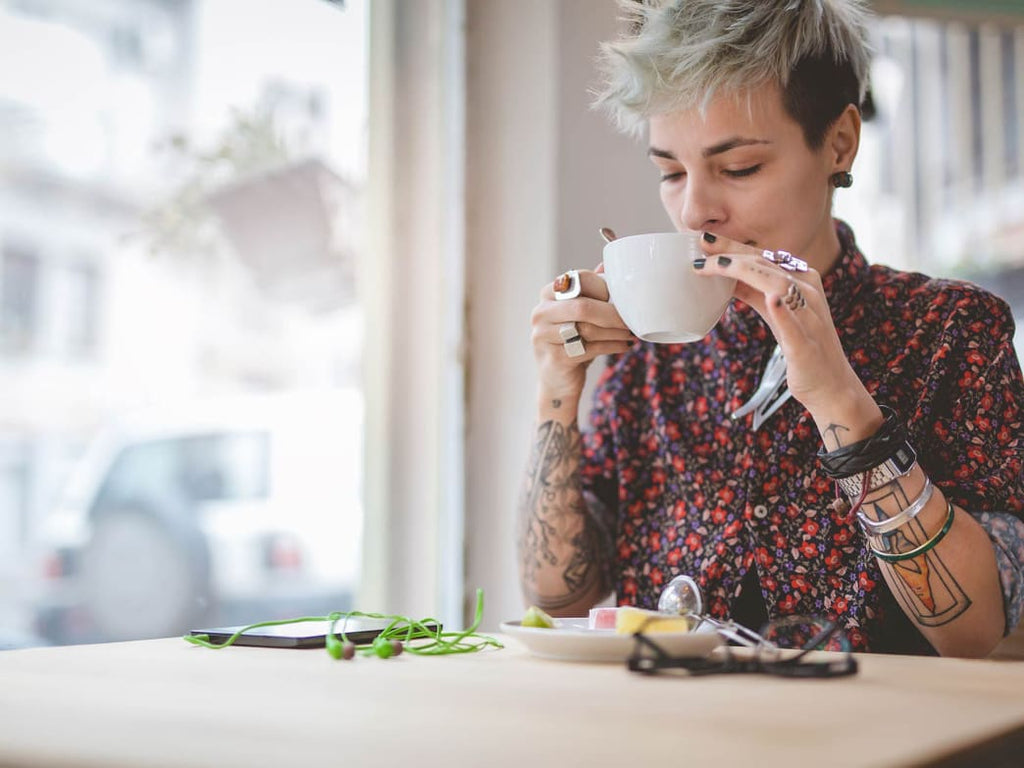According to Chinese legend, the Emperor Shen Nong discovered tea in 2737 B.C.E., when a random tea leaf landed in a pot of water he was boiling in his garden. He drank the infusion, loved it, and set off on a mission to discover all the healing properties of the newly discovered plant. And we get to enjoy the benefits of that ancient accident today. For thousands of years, people have been drinking tea to ease stress, unwind and relax during tense times. But with so many teas touting calming powers, it’s hard to know what to look for. Here’s what you need to know.
Watch Out for Caffeine
Caffeine is one of the worst things for you when you’re anxious and want to calm down. So be sure to pick your tea carefully. There’s a misconception out there that certain types of tea, like green and white, don’t have caffeine. In reality, any tea that derives from a tea leaf (the Camellia sinensis plant) will have at least some caffeine. That includes black, green, yellow, white, oolong and dark teas. So look for a label that says “decaf” on it if you don’t want the jitters.
Look for Herbal “Teas”
Herbal teas don’t come from tea leaves, and are really the only “tea” drinks that can be 100 percent caffeine free. For the best calming effects, opt for one of these. You’ll find both blends and individual herbs to choose from—so pick whatever sounds best for you. The box will either say “herbal” or “caffeine free.” (Keep in mind that caffeine free and decaf are not the same; decaf teas still have a small amount of caffeine in them.)
Bank on Ancient Knowledge
There’s a reason people have been using herbs and teas all these years: they work. Consider the historical healing uses of certain herbs, and if you think that might help you, pick a tea with them in it. Like peppermint, which is good for an upset stomach, or valeria, which can help you sleep. Just remember that if you’re brewing tea for a specific medicinal purpose—like combatting stress—cover the cup while it’s steeping to make sure none of the volatile oils carrying all those great healing properties escape.
Match Your Tea to Your Stress
How exactly are you feeling? Are you jittery, overwhelmed, worn out or just irritable? Look for an herbal tea that matches how you’re feeling. A lot of brands such as Total Tea provide descriptive packaging that explains how that particular tea can help you. That way you’ll know those blends are exactly what you need to calm down quick.
Written by Jennifer Billock for Better You and legally licensed through the Matcha publisher network. Please direct all licensing questions to legal@getmatcha.com.


